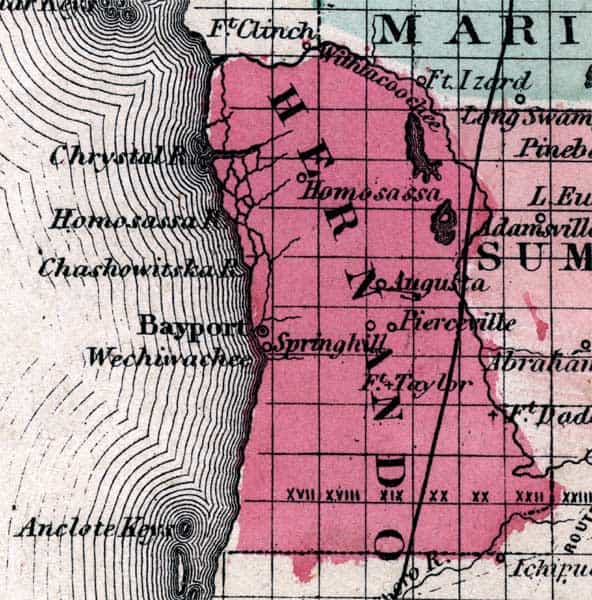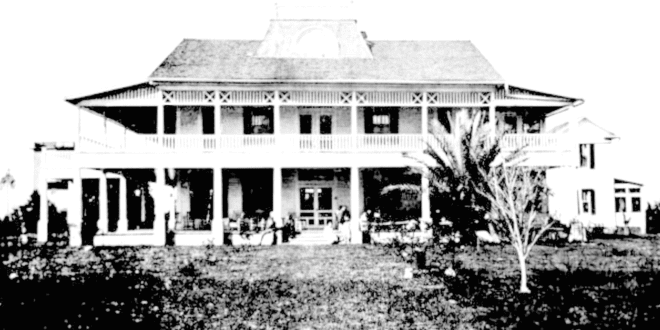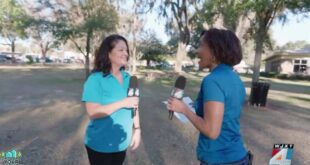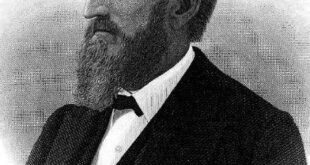– Advertisement –
The Beginning
BY BLAKE BELL
Hernando County is rich in history. From an early age, the importance of this history was ingrained in me by my Grandfather Snow, a member of one of Hernando County’s founding families. As a young boy, I listened to his vivid stories of Hernando’s earliest days—stories of sojourners searching for new land and opportunity, soldiers and Southern belles, religious leaders and conquistadors, cowboys and Native Americans.
In this new series to the Hernando Sun, we will explore Hernando County history each month through a wide-ranging study of the people, places, and events instrumental in its history.
Like many American stories, early Florida history is layered with explorers in search of fertile land and opportunity. The first documented discovery of our area is from the Spanish explorations of Juan Ponce de León in 1513, Panifilo de Narvaez in 1528, and Hernando de Soto in 1539. Long before these written accounts of the Spanish discoveries of “La Florida,” Native Americans known as the Timucua Tribe inhabited this land. The arrival of European explorers marked the beginning of decades of turmoil and battles between Native Americans and these visitors.
It would take over 300 years after Ponce de León’s landing for Hernando County to officially take shape. Hernando County was created by the Governor and Legislative Council of the Territory of Florida on February 4, 1843, two years prior to the state being admitted to the Union. At its inception, Hernando County encompassed all of what is now Pasco and Citrus Counties. This development followed the passage of the Armed Occupation Act in 1842 by Congress, which aimed to populate Florida with settlers. The Act gave up to 160 acres of land to settlers who met specific criteria, including being a U.S. citizen, willing to settle and cultivate at least five acres in Florida for five years, and to provide militia service if needed. This pivotal period coincided with the Second Seminole War (1834-1842), marking a turning point for both “La Florida” and the newly established county.
As we begin this series, it feels appropriate to start at the root of Hernando County’s history. When considering the first story to tell, Chinsegut immediately emerged as the ideal subject. While Chinsegut Manor is the oldest standing house in Hernando County, it represents far more than four walls and a roof. The grounds of Chinsegut Manor are steeped in history, telling stories of multiple families and significant events that span generations. Some even suggest Chinsegut marks the very starting point of Hernando County history. For these reasons, it is a fitting focus for the first installment in this Hernando History series.
– Advertisement –
Exploring Chinsegut’s History
Over the next few months, we will explore the different eras of Chinsegut’s history:
February: “Tiger Tail: Native American Activities and Bird Pearson”
March: “Mt. Airy: Col. Francis Ederington and the Home His Family Built”
April: “Snow Hill: Charlotte Ederington Snow—A Story of Resilience”
May: “Chinsegut: Raymond Robbins and Beyond”
This series is an exciting opportunity to honor Hernando County’s history and share the remarkable stories that have shaped our community. Thank you for joining me on this journey as we highlight the rich heritage of Hernando County.
Blake Bell, an attorney, served as the Mayor of the City of Brooksville for two terms. He serves on the Board of Trustees for the Tampa Bay History Center, teaches Sunday school, chairs the Ederington Family Foundation, and is a member of the Withlacoochee Chapter of the Sons of the American Revolution. A seventh-generation Brooksvillian, Bell is a direct descendant of Hernando County founding families Ederington, Mein, and Snow.

Map Credit: USF/ Courtesy of the private collection of Roy Winkelman.
 Mind Uncharted Explore. Discover. Learn.
Mind Uncharted Explore. Discover. Learn.




